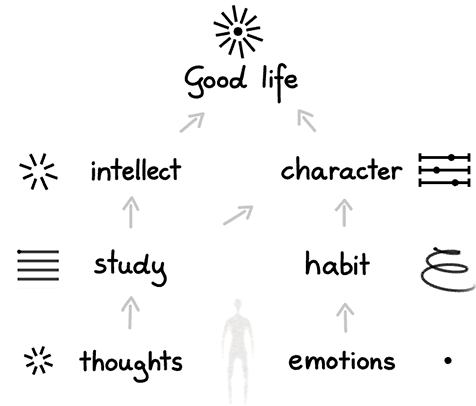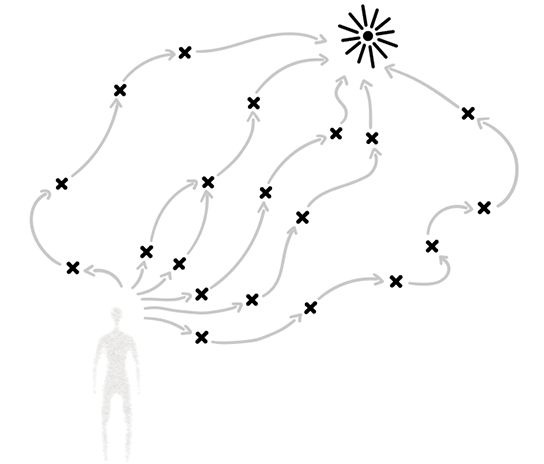2400 years ago, Aristotle answered a question that we still ponder today: What is true happiness? His answer is simple yet profound. Aristotle emphasized that life should be lived in pursuit of excellence, beyond mere pleasure. He proposed that a life focused on ‘excellence’ rather than the emotional joy we often equate with happiness is the true path to well-being.

1. What is a Good Life? – Aristotle’s Perspective
In *Nicomachean Ethics*, Aristotle explains that a good life is one where an individual performs their unique function well. Just as a good knife cuts well and a good eye sees well, a good person is someone with clear intellect and noble character. He emphasized the importance of the soul that thinks and feels, arguing that when this soul achieves its purpose through noble actions, a good life is realized.
2. The Importance of Intellect and Character
In modern society, many things are often reduced to the term ‘intelligence’. However, Aristotle focused not just on the amount of knowledge one possesses, but on the depth of reflection and wisdom one can demonstrate. He presented various virtues, emphasizing especially prudence (*phronesis*) and wisdom (*sophia*). These virtues represent more than just knowledge—they symbolize the ability to make correct decisions in life and to grasp profound truths.
3. The Art of Managing Emotions – The Aesthetics of the Mean
Aristotle explains the importance of appropriately managing emotions through the concept of the mean. He described courage as the mean between cowardice and recklessness, and temperance as the mean between gluttony and abstinence. This mean can vary depending on the situation and the individual, and managing it well is seen as the essence of good character. Ultimately, rather than adhering to strict rules, we must cultivate the right habits to find the appropriate mean and thus train our character.
4. Excellence is a Choice – Happiness Comes from Action
Aristotle believed that while humans are born with the capacity to be good, it is our responsibility to develop it. He stated, “Excellence is not an act, but a habit,” and explained that happiness is achieved not through mere pleasure, but through a lifetime of excellent actions. This reflects his philosophy that the ultimate purpose of everything we do is to become the best we can be.

Conclusion: Pursuing Excellence for True Happiness
Aristotle’s teachings offer us an essential lesson: Happiness is not in fleeting moments of joy, but in the continuous effort to find our place in the world and lead ourselves towards the best version of ourselves. The ‘happy life’ he described is not about chasing pleasure, but about living with a sharp intellect and a noble character.
As you read this, I encourage you to pursue excellence over pleasure and seek deeper happiness. Like Aristotle, remember that happiness is not just a feeling, but a continuous journey toward excellence.
Reference: ralphammer.com, “Aristotle — How to live a good life”
